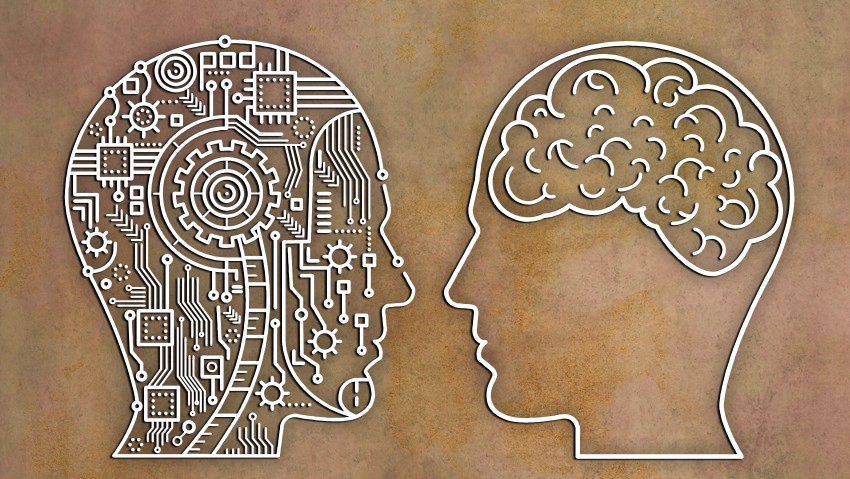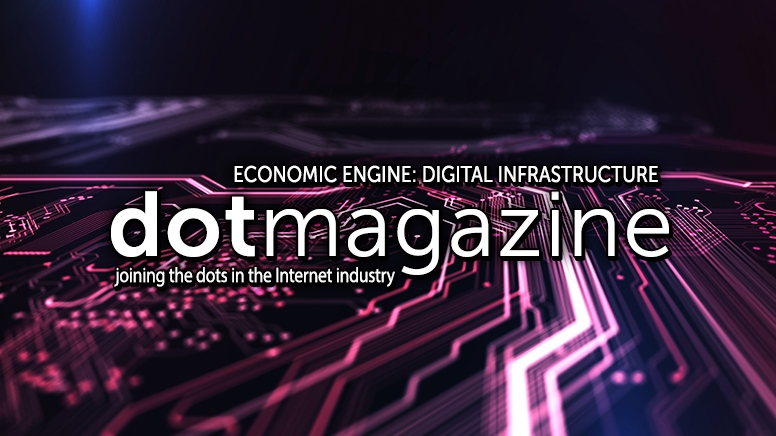Transforming Business Models in the Platform Economy
Digital economist Holger Schmidt explains the three waves of digital transformation and how platform-based business models evolve.

© SuwanPhoto | istockphoto.com
dotmagazine: What do you see as the key factors to drive digitalization?
Dr. Holger Schmidt: Normally the digitalization process has three different components: the first is the digitalization of the customer journey, the next is digitalization of operations – operational excellence – and the third one is that it transforms a complete business model. If you look at the new digital business models, I believe we have two different types. The first is the platform model, focusing on being an interaction provider between supply and demand, focusing on data, and focusing on building alliances and ecosystems. The second one is the IoT data model, which builds data-driven business models, service models, pay-per-use models mostly focused in the industry.
dot: Could you explain the three waves of digital transformation as you see them historically and at present?
Dr. Schmidt: If you look at the 20 years of digital transformation we have seen so far, normally companies start with the digitalization of the customer journey, to find customers in social media, to build an email newsletter, to do all the things to enable digital contact to customers, or to build new digital products like an electronic version of print newspapers, for example. That’s the first stage. The second stage – mainly interesting for industry companies – is to digitalize all of your internal operations; production office, back office functions, supply chain management, all of these internal aspects that are digitalized in order to become a more efficient company. That's the main driver. Automation becomes a driver for more efficiency in the company.
And the third stage, which I think is the most important one and the most interesting one, is to build completely new digital business models. If you look at digitalization so far, most of the success stories have their origin in this third stage, where companies can differentiate themselves from each other. Because many digital disruptions have taken place via business modeling and not via operational excellence. So, from my point of view, transforming existing business models is a key element in the digital transformation process.
dot: How does a platform environment like Uber develop? What are the interrelationships and what is the value of a platform of this nature?
Dr. Schmidt: Uber was started as a sharing platform, with simply shared capacities: If the driver has a capacity to drive and he shares it with a passenger who wants to be driven, this is a very easy way to do it. But Uber has switched models to the third-generation platform, and the third generation is about building ecosystems. The Uber ecosystem now contains Uber Eats (food delivery), Uber Health (transportation of patients), Uber Jump (bicycles), Uber Freight (logistics), they have recently added Uber Works (Freelance Workers), and they have cooperation agreements with rental car companies and credit card companies to support the drivers, for example.
So they have built a complete ecosystem around their original business model, and they are earning money in all these sorts of interactions generated on the platform. Uber is one of the largest food delivery companies worldwide currently. It developed as a side effect from the original business model, but it is working very well, because they have the infrastructure, they have many drivers on the road, and the drivers can fill their free capacity by delivering food. All these sort of things are characteristic for platforms. The efficiency is much higher than a normal pipeline model, because drivers can switch between activities – driving food, driving passengers, driving ill people – and can earn more money doing so.
dot: Which industries is this kind of platform ecosystem relevant for?
Dr. Schmidt: The question is in which industry it is not relevant. We have seen the beginnings in many B2C markets like travel, books, and currently cars. Many B2C markets are already organized as a platform. We also see it in e-commerce markets which are dominated by platforms – with market shares in China above 90 percent, and in Europe and the US above 60 or 70 percent.
So what we see is a competition between platforms, rather than competition between the new platform model and the old pipeline models. That competition is over.
Many B2B markets are also now shifting to the platform market. It's early days, of course, but in the logistic markets, for example, you can see very clearly that there are new platform models. And you can see it in B2B trade platforms like Amazon Business. Alibaba is in the B2B market, as is IndiaMART. Mercateo and SAP Ariba are focusing on these B2B trade platform markets in Germany. So at the moment there are a lot of approaches to entering the B2B markets and – especially if you look at that the automotive sector – it's obvious that there has been a big shift. Uber, Didi Chuxing, and Tesla and many other companies are trying to build platforms in the automotive industry.
dot: Moving on to AI: Is it a real game changer, and why, and when will we really start to see the impact of it?
Dr. Schmidt: Yes, I think AI is a game changer or, as economists call it, a general purpose technology. So it is relevant in every industry. How it will take off depends on the amount and the quality of data available. If you look at the Chinese markets, many of them have lower data protection standards, but the result is that they have much more data to use – and the result is that artificial intelligence is up and running in China. If we look at what’s happening in Germany, for example, the data is there, but has to be prepared for usage by AI algorithms. So I think it will really be about two or three years before we see AI take off in the industry in Europe.
dot: What should be done to mobilize the German/European industry for more cooperation and to achieve a critical mass for competitive digital platforms?
Dr. Schmidt: The causes of our backlog are the lack of venture capital, and limited willingness to invest. The money is there, but the preparedness to accept higher risks and longer investment phases are not in our DNA. This will not be an easy process, and will take some time.
Dr. Holger Schmidt is a keynote speaker for the digitalization of business and work, especially on the topics of digital economy, digital business models, platform economy, artificial intelligence, and New Work. He teaches digital transformation at the Department of Information Systems at the TU Darmstadt, writes as a columnist for the Handelsblatt, and builds platforms for companies. Before that, he spent 20 years as a journalist reporting on the digital economy, mostly for the Frankfurter Allgemeine Zeitung.
Please note: The opinions expressed in Industry Insights published by dotmagazine are the author’s own and do not reflect the view of the publisher, eco – Association of the Internet Industry.




